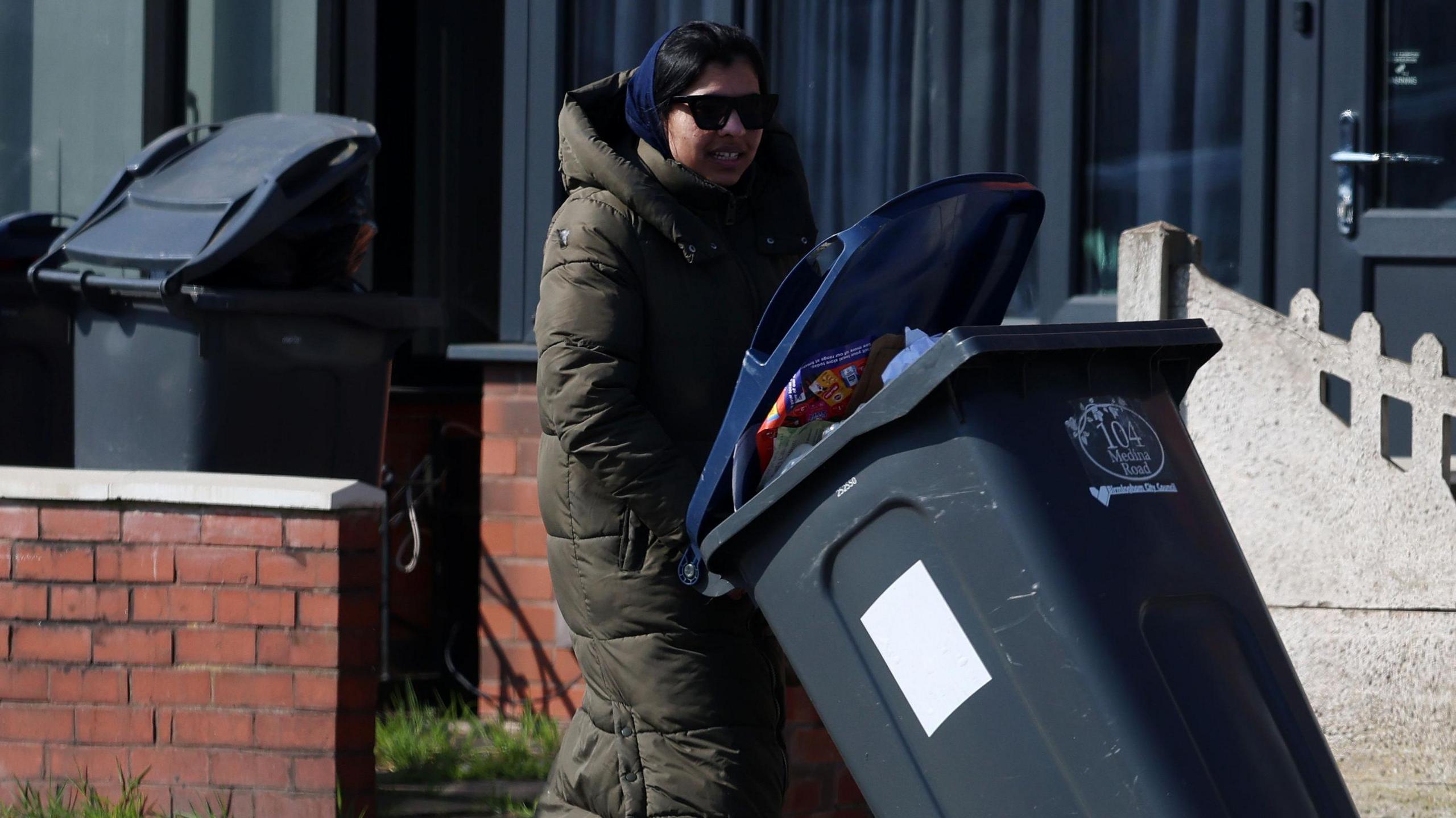Birmingham bin workers facing redundancy notices
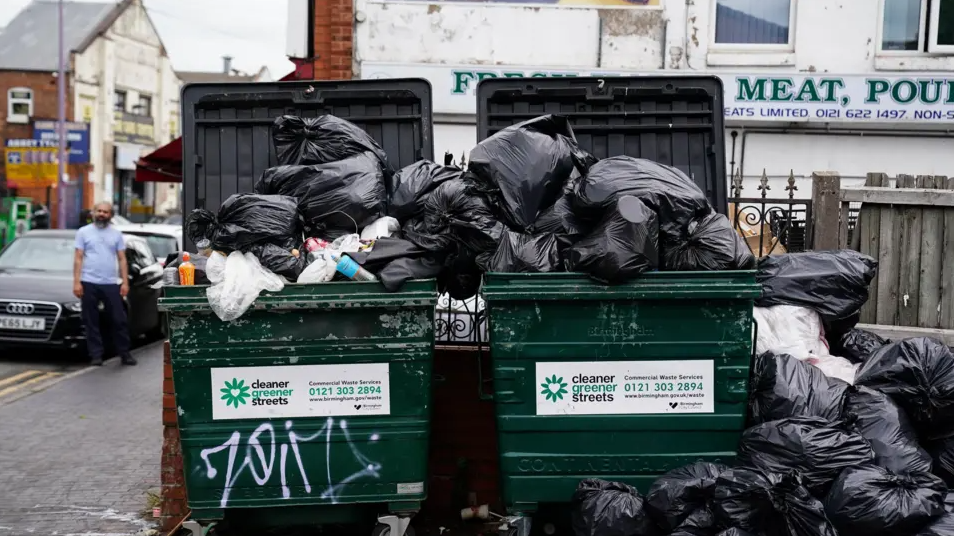
The strike is in its seventh month, with union members voting to extend their action to March
- Published
Birmingham City Council has begun the process of compulsory redundancies for a number of bin workers, the BBC understands, as the city continues to wrestle with the impact of strikes.
Unite union members in the city began a full walkout seven months ago, and in September voted to extend their action until March.
The local authority has unveiled plans to improve waste collection services, but the proposed changes to job grades include pay cuts of up to £8,000 for some staff, according to the union.
The BBC has been told a small number of workers have this week been put on a notice period. Unite has been approached for a response.
John Cotton, leader of the Labour-run authority, said he was "really disappointed" a negotiated settlement had not yet been reached.
"We're having to press forward now with making changes to a service that frankly has not been delivering effectively for residents of Birmingham," he said.
"We've put several reasonable offers on the table to try and find a negotiated settlement, all of those were rejected by Unite the union... the demands Unite were making in return are not ones that this council can entertain or afford and indeed would reopen all the problems that we've had around equal pay."
Why are Birmingham bin workers on strike?
- Published17 November
Thousands rally to support striking bin workers
- Published20 September
The council said it had offered some bin workers the opportunity to take voluntary redundancy or change roles within the council.
Unite members, however, have claimed there are very few appropriate jobs that would mean a commensurate salary.
It was the council that walked out of negotiations hosted by conciliation service Acas in July, saying it had "reached the absolute limit" of what it could offer.
At the time, Unite General Secretary Sharon Graham accused the local authority of "fire and rehire" tactics, but added they would not work.
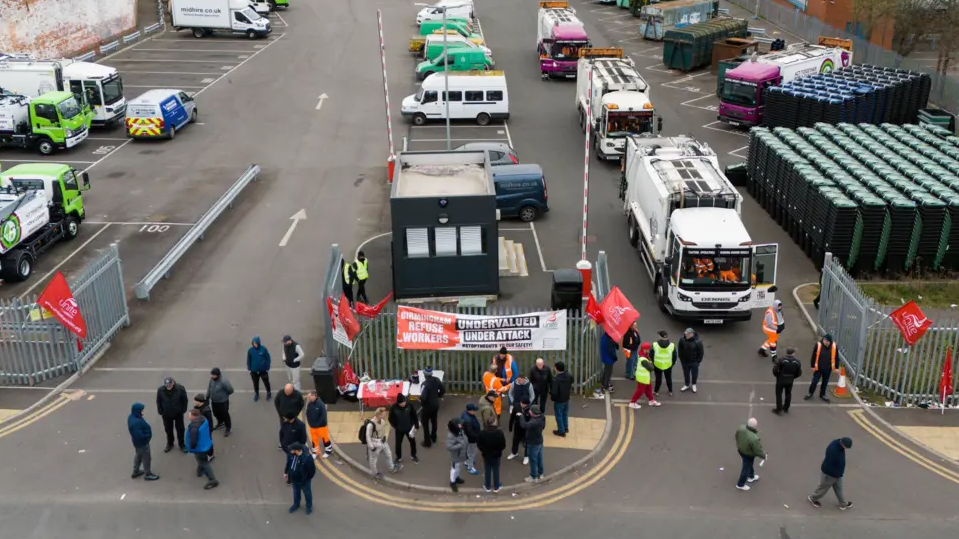
All-out strike action started on 11 March (image from March 2025)
On-and-off strike action began on 6 January with 12 walkouts planned across four months, but the situation escalated and the union began an indefinite all-out strike on 11 March.
The dispute began over the removal of a senior role on each bin crew, which the union said was safety critical, but the council said was not industry standard.
Since then, the pay of bin lorry drivers has also come under the spotlight.
The council announced earlier this week that it had resolved an equal pay case with the Unison and GMB unions affecting hundreds of female workers who had been historically paid less than male counterparts in comparative jobs.
Both unions have welcomed the equal pay deal, which in 2023 was estimated would cost the authority £750m. The council has not revealed the financial details of the latest settlement.
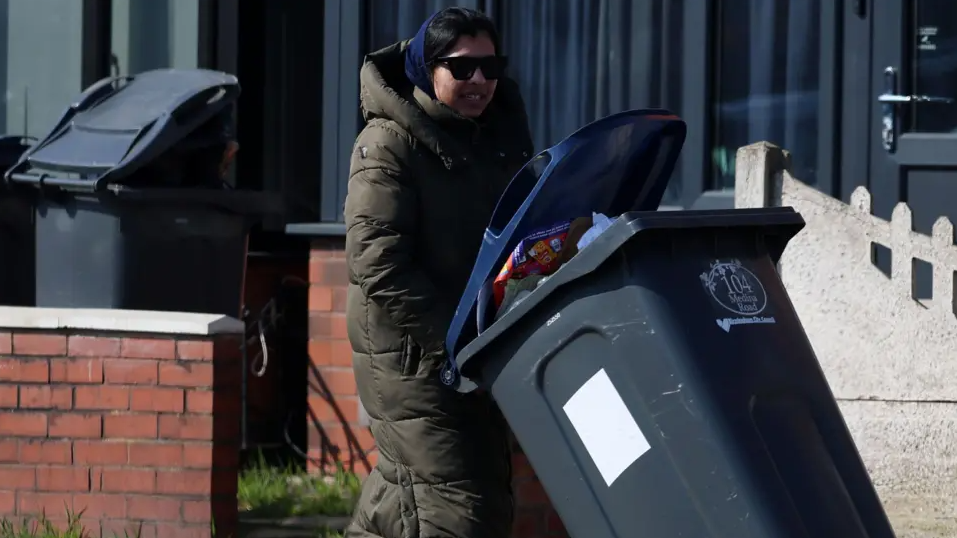
The dispute started over the city council's decision to remove Waste Recycling and Collection Officer roles
Unite said the settlement revealed "ongoing mismanagement and incompetence" at the heart of the council.
Sharon Graham added the bin strike was "a direct result of the council's mismanagement of its finances".
Cotton, however, said he felt the authority had done "everything we reasonably could to resolve the dispute".
"The big picture is that we cannot allow a position where there is equal pay injustice for workers in this authority or costs that have been placed on the taxpayers in this city," he said.
"We've had a statutory consultation with the workforce and we're still working through some of the final iterations of that, and with the workforce to identify alternatives... but clearly we've had to take these steps in order to take forward the changes we need to make to the service."
Get in touch
Tell us which stories we should cover in Birmingham and the Black Country
Follow BBC Birmingham on BBC Sounds, Facebook, external, X, external and Instagram, external.
Related topics
- Published1 October
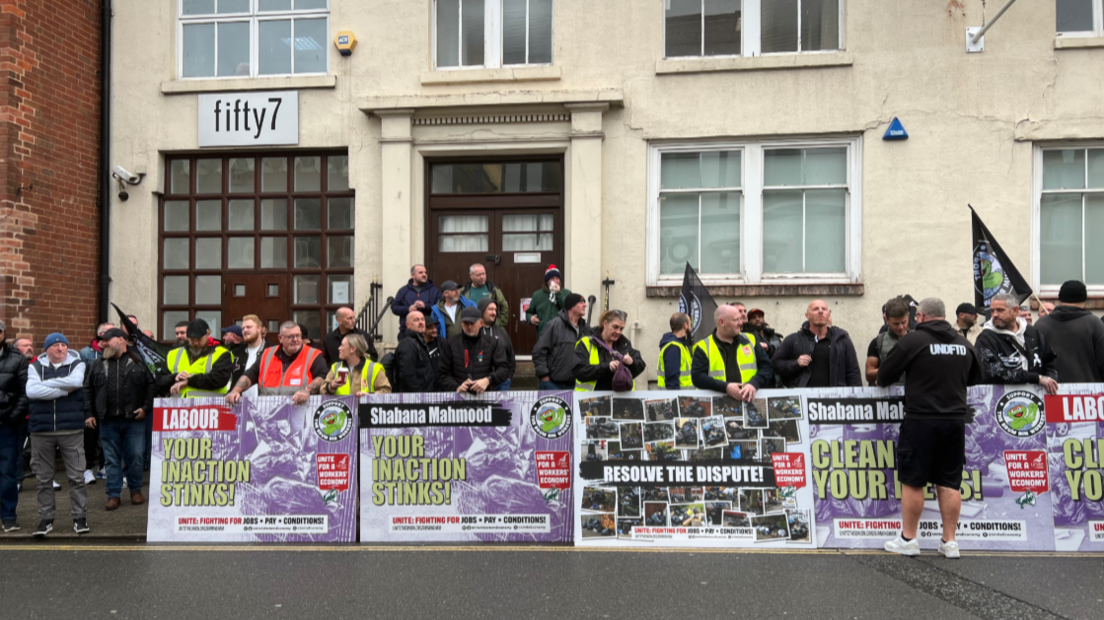
- Published9 September
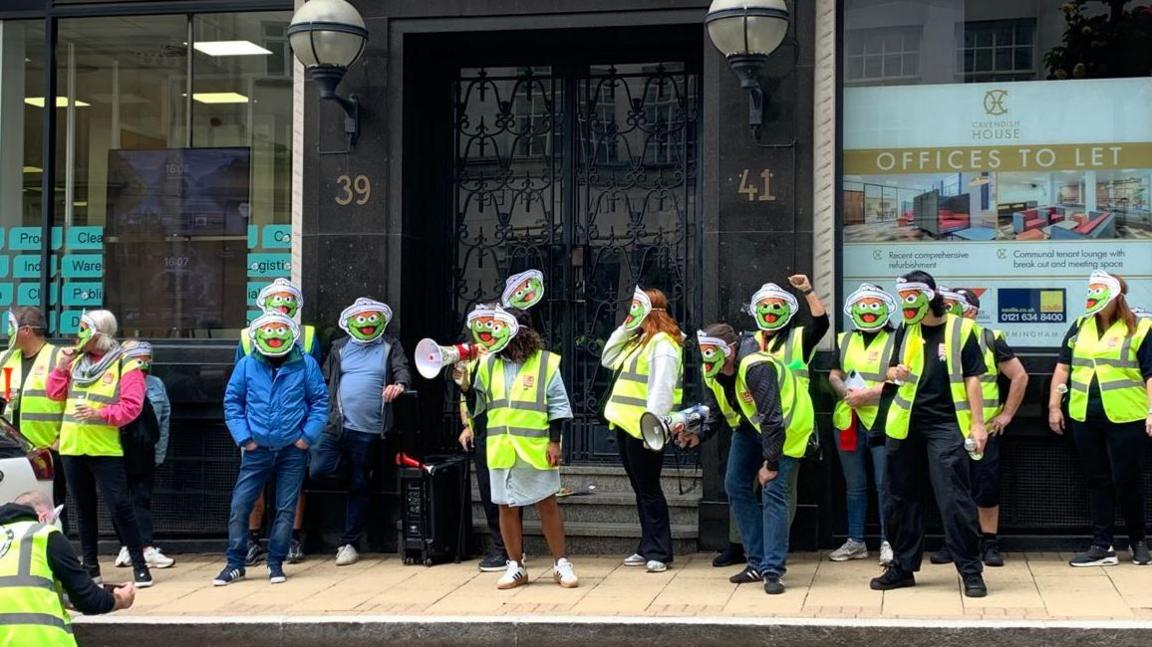
- Published3 September
